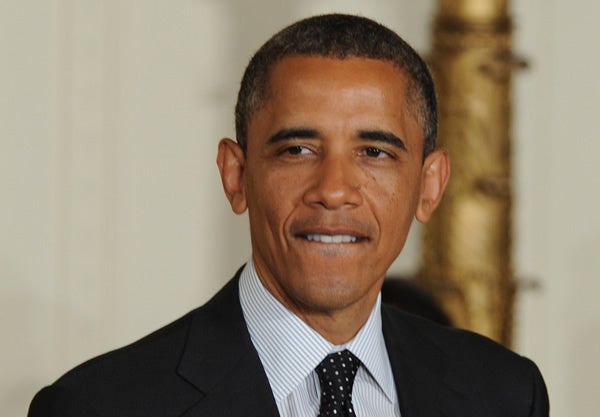
President Obama came into office globally hailed as the savior of America’s standing in the world. Now, three-and-a-half years into the Obama presidency, international disappointment has set in.
In its recent release of the 2012 report, the Pew Global Attitudes Project stressed that global public opinion is still so much more favorable toward the United States than it was under President George W. Bush and that a majority of its 21,000 respondents worldwide still hoped Obama would be reelected. However, unless Obama changes his style of governance—much talk and little action—the downward trajectory will likely persist, given that it is based on disappointment and disillusionment.
Nowhere was the initial adoration of Obama more intense than among Europeans. The election of an African American to the highest office in the United States was greeted with euphoria, even though Europe itself has never produced a head of state from a minority group.
In Germany, approval of the American President rocketed overnight from 14 percent during the Bush years to 93 percent in 2009 after Obama’s election. Expectations were sky high, fueled by candidate Obama’s own overblown rhetoric, such as his Berlin speech, in which he grandiosely addressed the “citizens of the world.”
As recorded by Pew, since then, some of the bloom has gone off the romance, caused in large party by disillusionment with Obama’s broken promises (a feeling familiar to many Americans). In every European country for which there are survey data, confidence in Obama’s leadership has declined, between 6 percent and 12 percent.
While this may not be a dramatic decline, its specific causes are noteworthy: One is unmet expectations on promises on multilateralism and seeking international backing for military actions. Europeans registered a 14–20 percent drop in approval of Obama when asked whether Obama had the interests of their country at heart. Another is handling of the Middle East, a topic on which Europe saw a 17–32 percent drop in approval of Obama’s job performance. And on his Administration’s handling of climate change, the disappointment is particularly keen, with a 24–53 percent drop among Europeans.
In the Middle East, approval of the U.S. also rose after the 2008 election. However, attitudes toward the U.S. fell far more dramatically since 2009 than in Europe. Obama’s first foreign policy priority was outreach to the Arab world, encouraging exaggerated expectations in the region.
The drop among Arabs and Muslims since 2009 has several root causes. One is similar to the feelings among Europeans that the President has failed to keep many of his promises and is given to unilateral actions. However, in the fight against terrorism, the countries of the Middle East show far more disapproval than does Europe, with drone strikes being clearly the biggest issue. Thus, confidence in Obama’s leadership ranges from a high of 39 percent in Lebanon to a mere 7 percent in Pakistan.
Dashing the high hopes that accompanied his inauguration has clearly hurt Obama abroad. Ironically, so has the fact that in some important areas—such as multilateralism and fighting terrorism—American foreign policy has not changed as much as from the Bush years as Obama promised it would.





























